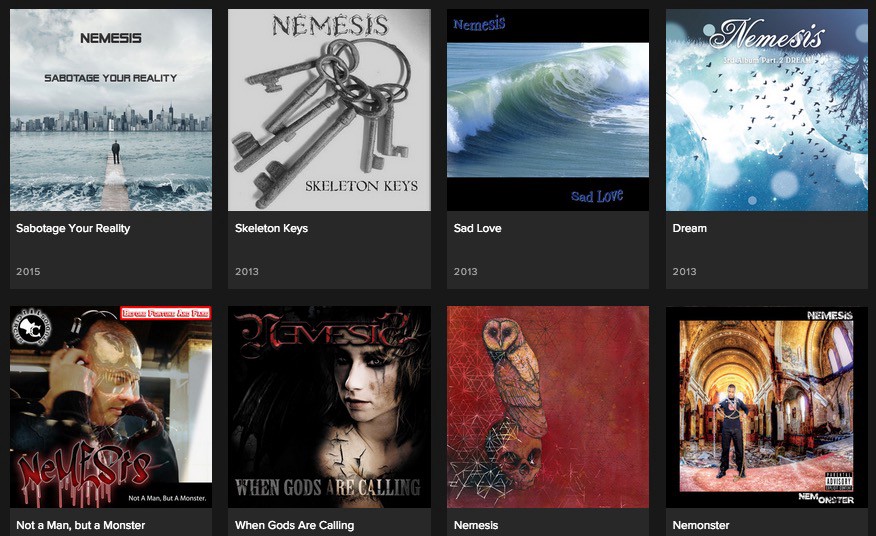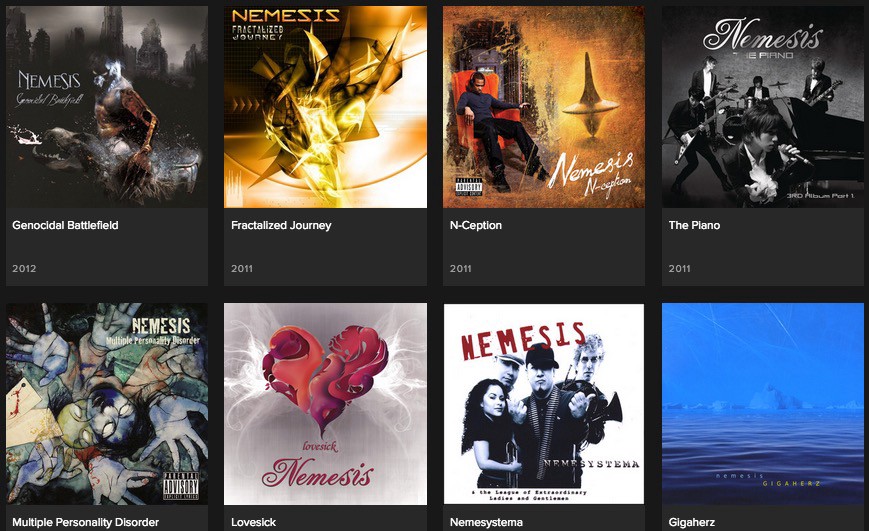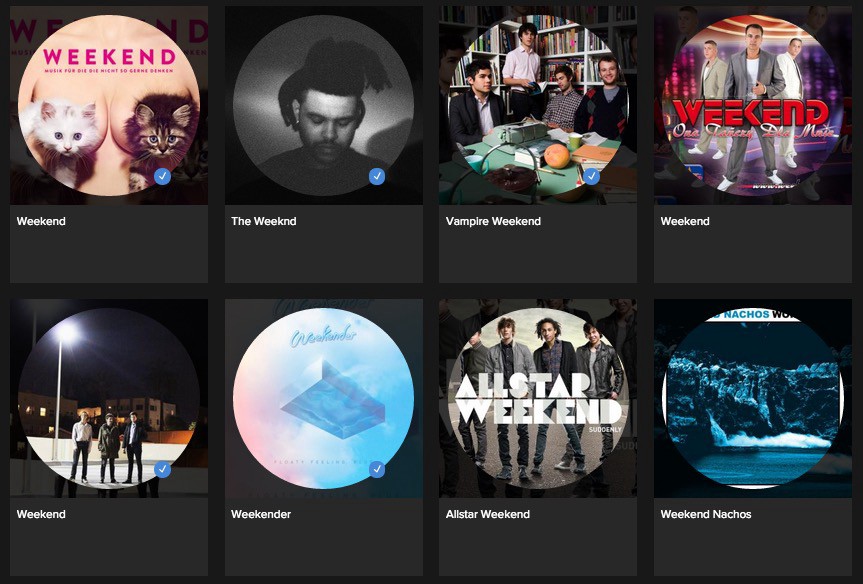What's in a Spotify Name?
by Jake Tuck

A musician’s name used to function as part of a fairly simple brand. Artists attached words to themselves that signified their coolness: “The Rolling Stones” is a cool metaphor that uses rocks; “Salt-N-Pepa” is a cool appropriation of condiments; “… And You Will Know Us by the Trail of Dead” is a cool goth sentence with a cool vestigial ellipsis. Now artist names have an additional function: they serve as metadata to be used in sorting music online. Sure, before the rise of streaming apps, some artists may have worried some about SEO (it’s not a great idea to name a band “The The” or “Yes” or “Search Engine Optimization Tips” anymore); but now that Spotify et al offers access to most of the music in the world, all in one place, there’s a more acute problem: if an artist doesn’t pick a name that no one else in the world has ever used, dumb computers are going to throw them into the same bucket as other artists.
From a Spotify user’s perspective, manifestations of this issue can be quite annoying. I recently got an alert from Spotify that Andrew Hill, the legendary jazz pianist, had a new song out. I was surprised — I didn’t think he still made music. I eagerly clicked on the song. It was a strummy breakup ballad with lots of water imagery. Andrew Hill the jazz pianist has been dead since 2007. This other Andrew Hill was squatting on his artist page.
If you can work through momentary annoyance, however, this common-name effect can be embraced as a pleasantly janky browsing function — especially if you’re interested in obscure international metal. Recently I visited the Spotify artist page for the rapper Despot, who has been working on his debut album for over a decade. There I found a full-length album, and I was very excited. Despot finally dropped his Detox! Except, no, the Despot that made the album I was listening to is a Brazilian black metal duo. Again, at first I felt duped, but then I kept listening; I wish I knew enough about South American metal that I could afford to dismiss happy accidents like this, but that’s not the case. A similar thing happened when I got an email from Spotify notifying me that Women, the great Calgary post-punk band that broke up a few years ago, had a new release out. I thought maybe it was a re-release of an old album or something. Nope, this Women is a British stoner metal band. Again, I briefly felt let-down, then got over it and wallowed in riffs for upwards of one and a half songs.

I’ve since gone deeper into the Spotify library and found some names with truly sick multivalence. I discovered “Nemesis” through this list of widely used names in metal, but there are just as many non-metal acts sharing the space. It’s possibly the apotheosis of badly-indexed online music (the Spotify artist page for “Apotheosis” is also also badly indexed, but not to the extent of “Nemesis”). There’s Nemesis the Chilean rap duo, Nemesis the Dallas rap crew, Nemesis the K-pop band that kinda sounds like Phish, Nemesis the other K-pop band that sounds less like Phish, Nemesis the German power metal band, Nemesis the Baltimore down-tempo deathcore band, Nemesis the Ohio hardcore band, Nemesis the Virginian butt rock band, Nemesis the Serbian DJ, among others.
I Facebook-chatted with the Nemesis responsible for the most recent full-length album on the page, the English electronic artist also know as Nick Snow. Though he hadn’t been on his Spotify page in years, when he checked it out, he was “a bit shocked at how disorganized it is.” When he came up with “Nemesis,” over ten years ago, after inspiration from a scene in Snatch, his Google research only turned up an old rap group, so he stuck with the moniker. “I didn’t expect so many other groups to pop up with the same name,” he said. If he had used his given name — which I half-expected to have been taken by several EDM DJs — he would’ve had an artist page all to himself.
Spotify does not seem actively interested in fixing this. The company provides a Google Docs form to submit metadata issues, and fixes them, sometimes. Not to defend an app I don’t think works particularly well, but the task of sorting all this confused metadata is a bit Sisyphean; music is constantly getting dumped into the Spotify catalogue; artists switch labels; deals with the service are made with labels or, worse, bundles of labels. Metal bands are still mining the Wikipedia page for Norse mythology. Indie bands are still fascinated by large woodland mammals and the beach. Rappers are still calling themselves Yung $omething. Guys named Andrew Hill or Chris Brown or “Joe” are failing to consider that a unique stage name might go a long way.

If you’re naming your band now and don’t want to fall into a tune-bucket, here are some recent examples to follow: Even before The Weeknd blew up and effectively subsumed anyone with a similar name (poor indexing most affects lesser-known artists), he differentiated himself from Weekend and Weekends, two other end-of-week acts I was already listening to when Abel Tesfaye appeared on my radar. He exploited the coolness of mundane words, but didn’t lump himself in with other acts doing the same thing. Similarly, the weed-punk guy Wavves — who might have ended up in the Spotify page for several bands called “The Waves,” one of which makes some very calming flute-synth muzak — has a Spotify artist page all to himself. And while you might make fun of a band called The World Is a Beautiful Place and I Am Not Afraid to Die, but they will never have to share Spotify real estate with a Maltese symphonic metal band.
